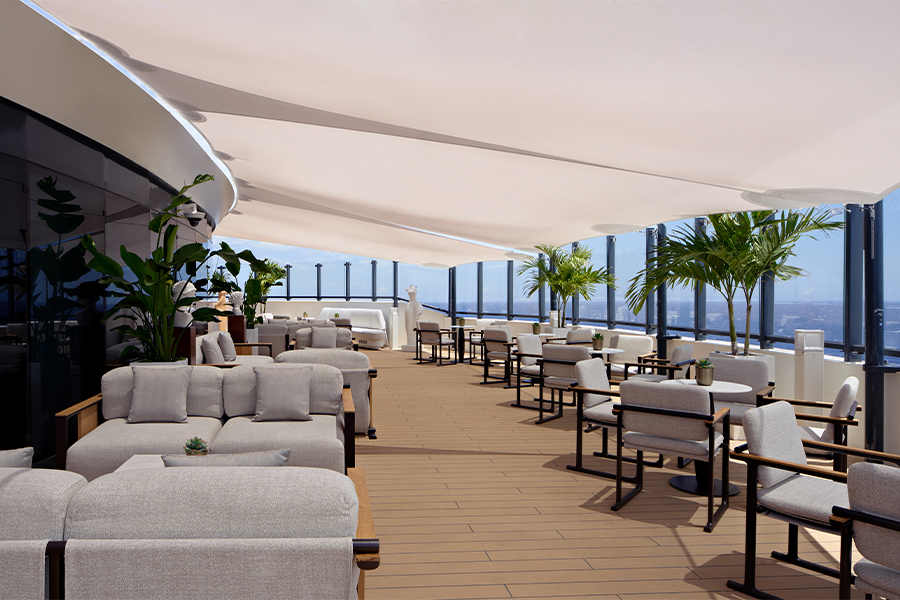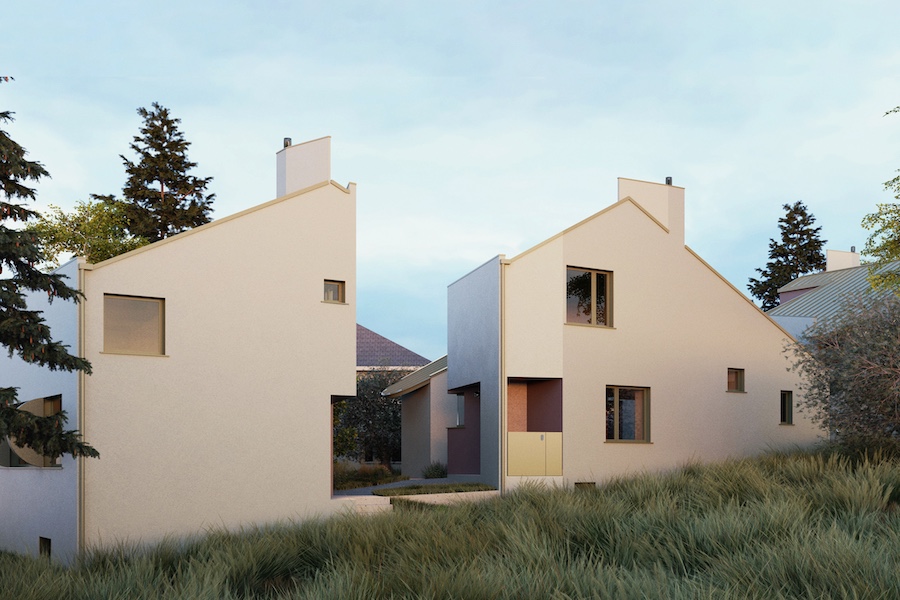Booking.com releases new data on LGBTQ+ travelers, Studio Libeskind designs modern affordable housing in New York, and the Wing founder Audrey Gelman tries her hand at hotels. All that and more in this week’s Five on Friday.
LGBTQ+ travelers are taking control of their trips

Photo courtesy of Adobe Stock
Booking.com’s latest LGBTQ+ travel research reveals over half (59 percent) of LGBTQ+ travelers have experienced discrimination when traveling, with 43 percent of respondents having canceled a trip within the past year after seeing a destination be unsupportive of LGBTQ+ people. More than ever, LGBTQ+ travelers are looking for the best and safest experience, such as choosing destinations that have protective legislation in place.
In 2021, Booking.com launched its Travel Proud program that provides free inclusive hospitality training for accommodations to help staff better understand the specific challenges faced by LGBTQ+ travelers, as well as what can be done to make guests feel more welcome. “At Booking.com, we believe everyone should be able to travel and experience the world in their own way,” says Arjan Dijk, chief marketing officer and senior vice president at Booking.com. “As a gay man, I unfortunately know first hand the challenges that persist in many parts of the world. Despite this, I am incredibly inspired to see LGBTQ+ travelers resiliently embracing their lived experiences, both at home and during their trips.”
Studio Libeskind unveils affordable housing building

The Atrium’s design was informed by Daniel Libeskind’s experience growing up in a Bronx housing cooperative; photo by Hufton & Crow Photography
Architecture firm Studio Libeskind has completed the Atrium at Sumner Houses, an affordable housing block with 190 apartments for seniors in Brooklyn, New York. At the heart of the 11-story structure is a full-height central atrium, with apartments arranged around it and access corridors overlooking the garden below. The Atrium’s design was informed by Daniel Libeskind’s personal experience of living his teenage years in one of the city’s housing cooperatives during the 1960s. “Growing up in social housing in the Bronx gave me a unique perspective on the importance of community and high-quality affordable housing,” he tells Dezeen. “I wanted to create a place that felt like home to the residents. I hope this project serves as a powerful example of how good design can positively impact society, especially for those in need.”
The Wing founder Audrey Gelman is opening a hotel

The Six Bells Inn, by the Wing founder Audrey Gelman, is slated to open in 2025; illustration by Lukas Palumbo
In 2016, Audrey Gelman founded the Wing, the women-only social club and coworking space that sprouted 11 locations across the globe before Gelman stepped down as CEO in 2020 after reports of a toxic work environment. The Wing officially shuttered in 2022. Since then, Gelman has slowed down the pace, opening up a country shop, the Six Bells, in Brooklyn. But the homewares store is only a gateway to Gelman’s ambitious plans. In an exclusive interview with The Wall Street Journal, she dives into her vision to expand the concept to a boutique hotel in the Hudson Valley, partnering with hospitality veteran Jeremy Selman, who will act as the property’s real estate developer and operator. The hotel will house 11 guestrooms, a café, and a Six Bells store, all wrapped inside an eclectic design by GrecoDeco. Gelman is exploring the space between luxury and theme hospitality, she says, leaning into the region’s quirky legends and history to create a fictional lore that will bring the Six Bells Inn to life.
The social impact of the High Line Effect

Philadelphia’s Rail Park, a freight rail line that was transformed into a public park that connects historically divided communities; photo by Sahar Coston-Hardy
Across the U.S., more cities are reimagining abandoned infrastructure, turning unused railways, roadways, and industrial sites into public green space. This is a phenomenon dubbed the High Line Effect, named after the High Line in New York, which is a transformation of a historic elevated freight line into a public park that stretches roughly 1.5 miles across Manhattan’s West Side. However, its popularity paved the way for gentrification and displacement in its surrounding neighborhoods, pricing out many longtime residents and businesses. Now, according to Arch Daily, new projects across the country are addressing underutilized spaces while being mindful of sharing the economic benefits with the existing community. These include the Underline in Miami; the 11th Street Bridge Park in Washington DC; Buffalo Bayou in Houston, Texas; and the Rail Park in Philadelphia, all which will feature forms of community programming and the preservation of affordable housing.
Gold Key submissions are now open!

From Avenue Interior Design, the Rouge Room at the Red Rock Casino Resort was a finalist in last year’s Gold Key Awards; photo by Clint Jenkins
Project submissions are now open for Boutique Design magazine’s 44th annual Gold Key Awards for Excellence in Hospitality Design. This award recognizes outstanding design across 23 categories, from hotel spaces and restaurants, to wellness venues and other hospitality settings. New this year are categories for Design at Sea (cruise ships and yachts) and Next-Gen Housing (for senior living, multifamily, co-living, etc.). To be eligible for the 2024 Gold Key Awards, new construction, conversion, or renovation work. The deadline to submit is July 26th, and winners will be revealed during an awards ceremony on Monday, November 11th at New York’s Cipriani 42nd Street in conjunction with Boutique Design New York (BDNY). Submit your projects today!



